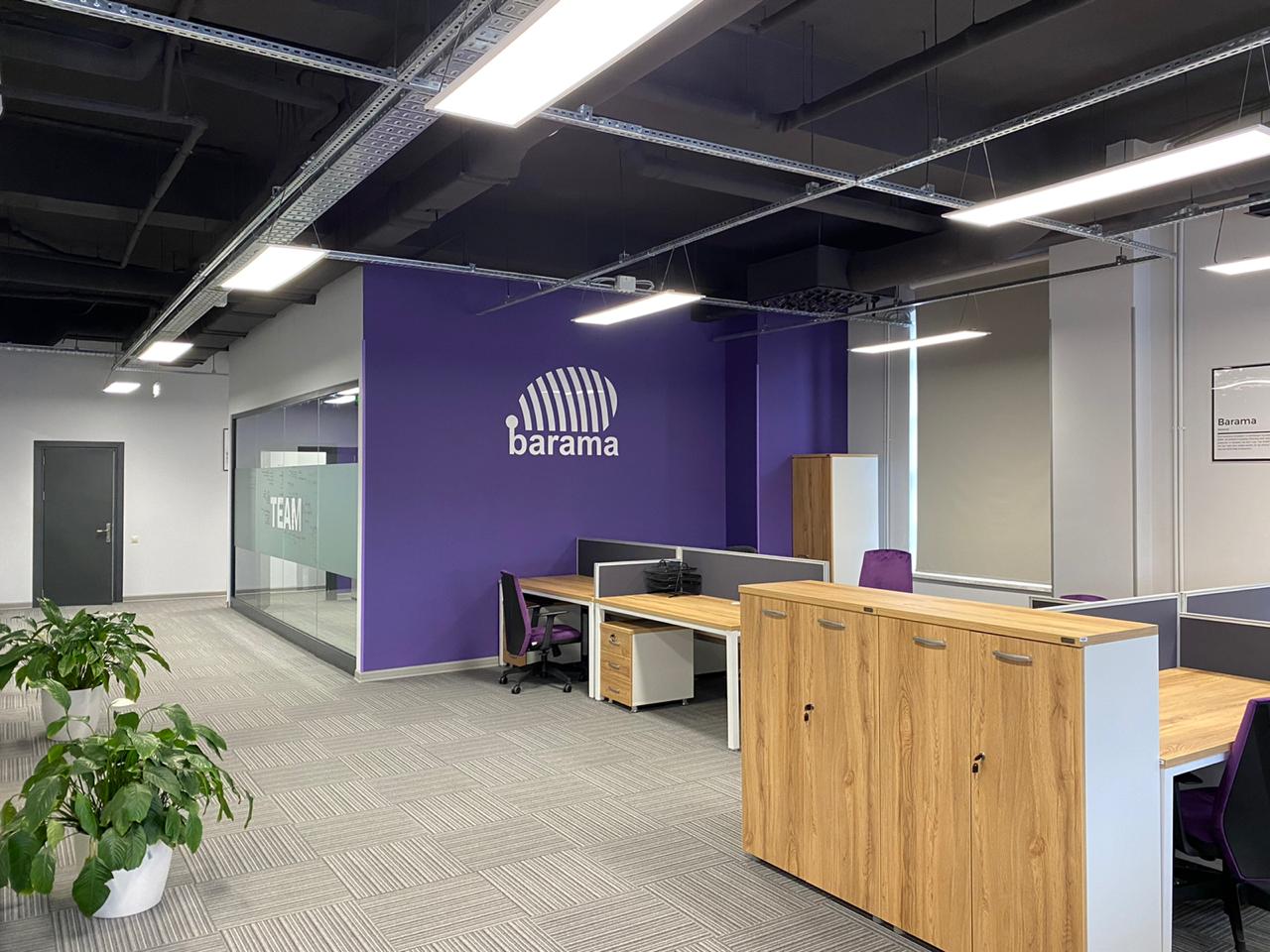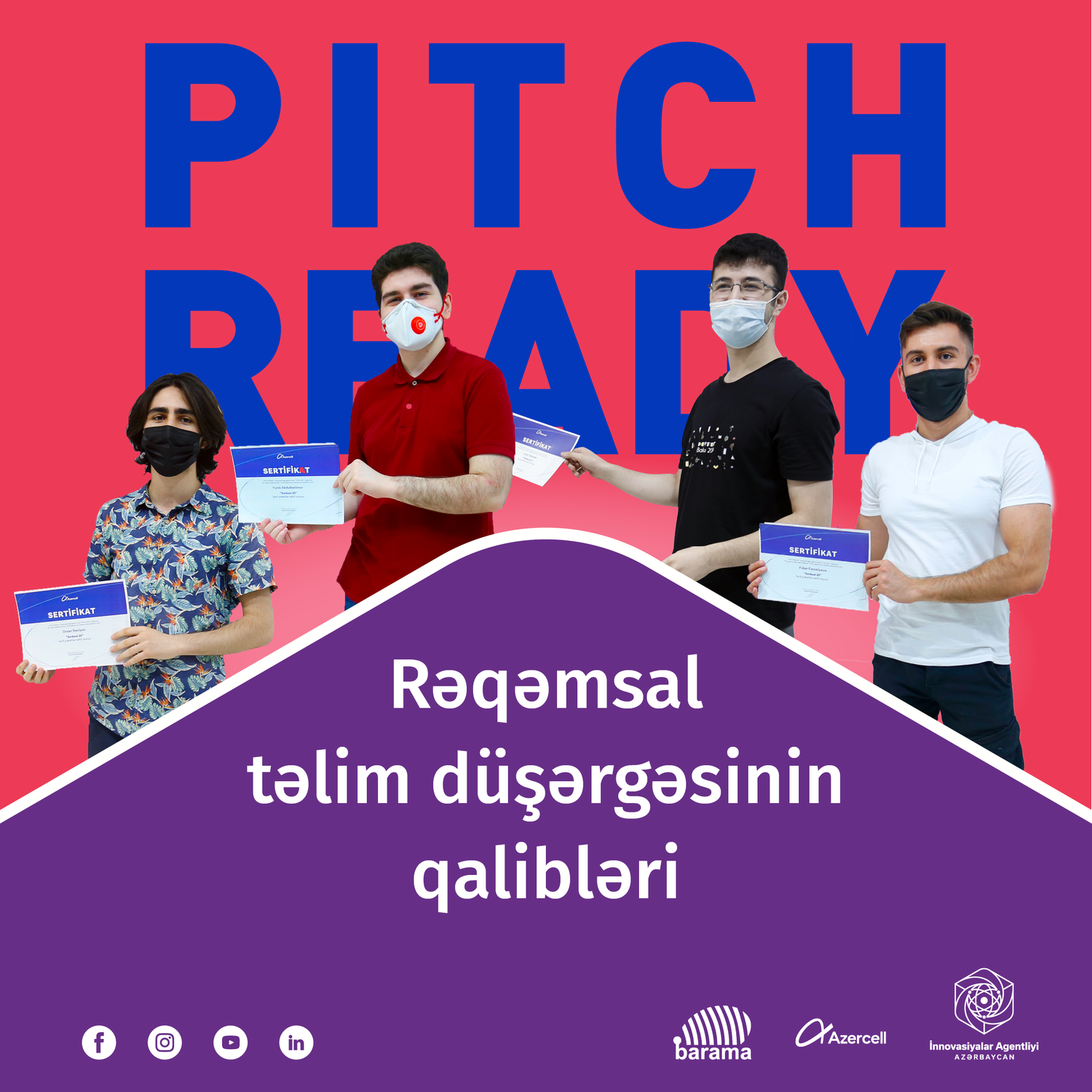by Ismayil Fataliyev, Local Correspondent from Azerbaijan.
According to the global startup ecosystem 2020 ranking Azerbaijan holds 70th position in the list of first 100 countries. By 2020, Azerbaijan, home to more than 200 startups, was among the frontrunners in the CIS area in this respect.
 Tural Zakaryazadeh is a 23 year old-start-up founder. In June 2020 together with his same-aged teammate Gulnar Absalamova, they created a new type of communication and collaboration tool – WTEAM, a virtual office for remote and distributed teams. He is sure the existing tools don’t naturally encourage more synchronous discussion and have friction even in the simplest of use cases. As a result, team members opt to skip the conversation altogether.
Tural Zakaryazadeh is a 23 year old-start-up founder. In June 2020 together with his same-aged teammate Gulnar Absalamova, they created a new type of communication and collaboration tool – WTEAM, a virtual office for remote and distributed teams. He is sure the existing tools don’t naturally encourage more synchronous discussion and have friction even in the simplest of use cases. As a result, team members opt to skip the conversation altogether.
“WTEAM helps to bring the best parts of your physical office into an online setting. Unlike other tools, WTEAM enables a sense of real presence to help your team feel more connected and be more aware of office happenings virtually, making communication and collaboration more easy, timely, and inviting,” – says Tural.
He is a graduate of the National Aviation Academy where he studied organization of air traffic services. His start-up is aimed at “remote and distributed teams around the globe.” Tural iis a chief technical officer in WTEAM. Gulnar, the other co-founder, is in charge of main executive duties. They also have Tural Mehdi, a software engineer, who is responsible for backend development.
The young start-upper says remote teams continue to feel lonely and they lose the nuance of human communication in this way.
“In an office, when you have a question, you ask. While remote, this isn’t happening. In the worst case, scheduling a Zoom or Slack could involve multiple steps. WTEAM encourages synchronous communication by providing the fastest way to have an audio or video discussion with a teammate — just tap a teammate and you can start an audio/video call with just one click.”
The current situation with pandemic has had a dual effect on the WTEAM. On one hand it is considered positive that many companies start working remotely. On the other, the COVID has directly impacted the investment process i.e. it is extremely harder to reach people than before.
It is worth noting that since public and non-public sectors are interested in start-ups development, both are taking steps to contribute to it.
Azerbaijan Startup Ecosystem (ASE) is a guide that contains all the necessary and useful information aimed at young entrepreneurs in their further activities. Being a community-based initiative, ASE provides start-uppers with the platform where they can benefit from ecosystem incubators and acceleration centers, technology parks and coworking centers, find relevant information about funds and grants for financing, international and local competitions for startups in Azerbaijan, as well as technical and legal information such as how to register a company, taxing, patenting and licensing, orders and decrees on innovation and entrepreneurship.
In its turn the government has established a State Fund for Development of Information Technologies which is engaged in providing investment. Moreover, since January 2019 startups here are exempt from profit tax and income tax for three years. The amendments to the tax legislation affect startups operating in the micro and small business segment and possessing a special certificate that confirms their innovative activities.
Startups registered as legal entities will be exempt from profit tax and individual entrepreneurs will be exempt from income tax. Another step forward was the establishment of a joint consortium initiated by the Innovation Agency under the Ministry of Transport, Communications and High Technologies.
 Zaur Unsizadeh is a 26 year-old project coordinator of the Startup Support and Acceleration Department of the Innovation Agency. The team`s flagship project is Barama Innovation and Entrepreneurship Center. This is the first business incubator established in Azerbaijan in 2009 with the support of Azercell Telecom LLC. The main goal of the Center is to develop the digital ecosystem in Azerbaijan. From 2019, Barama is supported by the Innovation Agency. The Center has held more than 300 events, collected 3,500 applications and launched 45 startups.
Zaur Unsizadeh is a 26 year-old project coordinator of the Startup Support and Acceleration Department of the Innovation Agency. The team`s flagship project is Barama Innovation and Entrepreneurship Center. This is the first business incubator established in Azerbaijan in 2009 with the support of Azercell Telecom LLC. The main goal of the Center is to develop the digital ecosystem in Azerbaijan. From 2019, Barama is supported by the Innovation Agency. The Center has held more than 300 events, collected 3,500 applications and launched 45 startups.
“Barama implements acceleration, incubation, educational programs for startups of different maturity stages. In 2019, it renovated its regional centers in Ganja and Lankaran (the 2nd and 4th most populated destinations in Azerbaijan). Each regional center holds monthly meetings and trainings to develop startups in the regions, and promotes the development of startups,” – he says.
 He also admits that the main difficulties for young people are lack of resources and access to financial resources, weak educational potential, and challenges related to team building. Among other obstacles are the weak operation of banks and international payment platforms here as well as limited market opportunities and location problems that have arisen during the Covid times.
He also admits that the main difficulties for young people are lack of resources and access to financial resources, weak educational potential, and challenges related to team building. Among other obstacles are the weak operation of banks and international payment platforms here as well as limited market opportunities and location problems that have arisen during the Covid times.
Although the Center`s office support was discontinued due to the pandemic-related restrictions, all other events and meetings have been held online. He says a Pre-Acceleration, a Pitching Bootcamp, a Startup School was successfully implemented, and another incubation program is currently being implemented online.
In conclusion, start-ups are emerging players in Azerbaijan and the country should go a long way forward to catch up with the world leading startup-friendly countries such US, India, the UK, Canada, and Indonesia. Azerbaijan can rightly be proud of its young idea generators. But ideas are just seeds which demand proper care and watering such as support of their projects, mentorship, coworking opportunities, access to international markets and investment and so on. If all these are done thoroughly, there is a big chance to shorten the distance with above mentioned frontrunners in the short run.
This article was produced by Ismayil Fataliyev, the Project’s local correspondent and EaP Civil Society Fellow from Azerbaijan in the framework of the EU-funded ‘Eastern Partnership Civil Society Facility – Regional Actions’ Project. Its contents are the sole responsibility of Ismayil Fataliyev and do not necessarily reflect the views of the European Union or the Project.
Read more about our local correspondents here.




